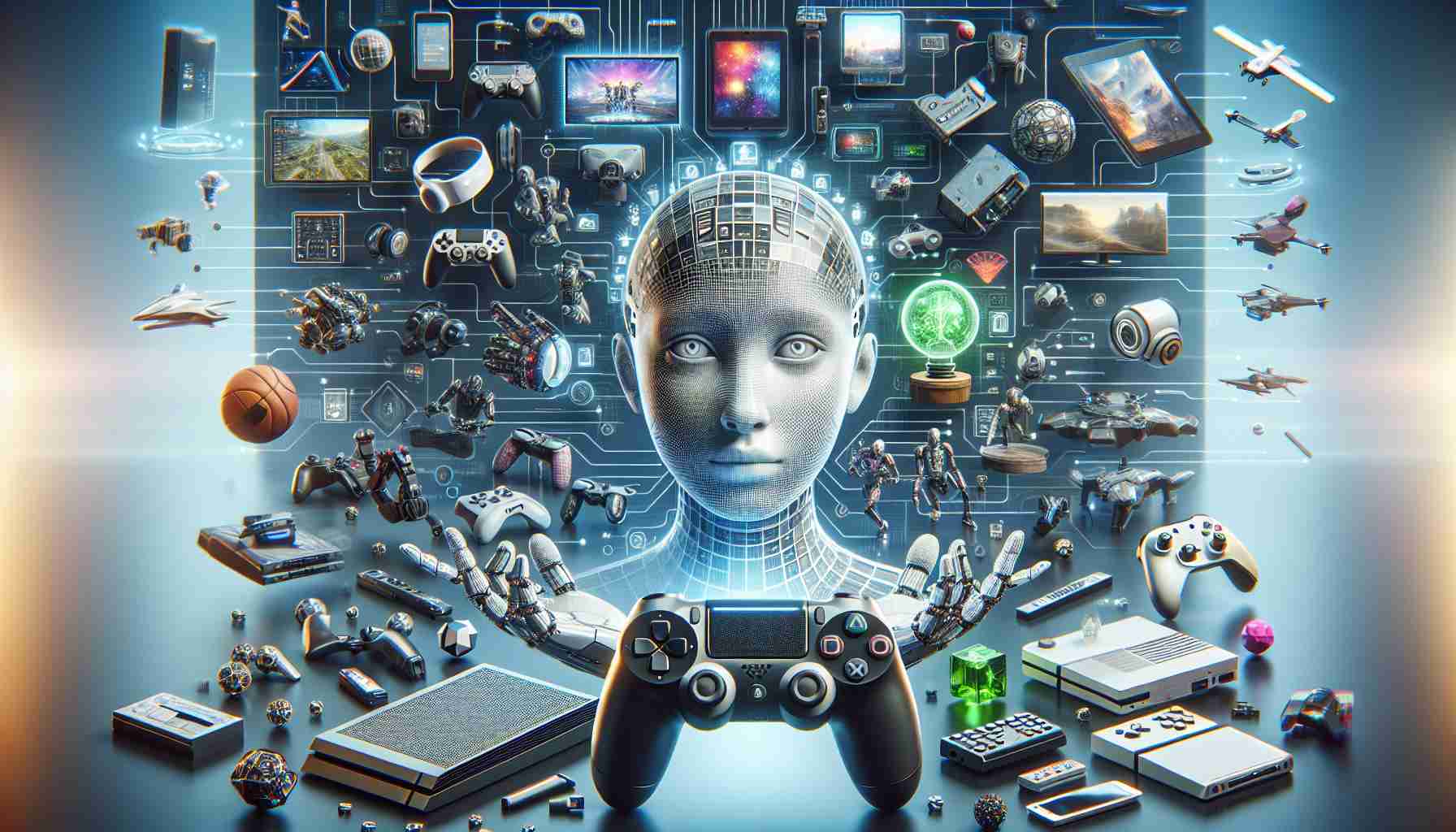Netflix is delving into the world of video games with a revolutionary approach by embracing generative AI, aiming to redefine player experiences and development speed. This ambitious move comes shortly after Netflix disbanded its high-profile game studio, Team Blue, resulting in numerous layoffs.
Mike Verdu, now appointed as VP of GenAI for Games at Netflix, expressed his excitement about this new venture in a LinkedIn post. He regards this technological shift as a pivotal moment in the gaming industry, reminiscent of the transformative era in the 1990s when groundbreaking games were launched frequently. Verdu’s enthusiasm stems from the belief that generative AI can usher in a new wave of creativity and efficiency, allowing developers to achieve astounding innovations at a rapid pace.
Netflix’s strategy involves leveraging AI to enhance various game development elements such as 3D model generation, concept art, and real-time game environments. While these innovative tools promise to streamline production, their impact on the roles within the gaming industry is yet to be fully understood.
Despite uncertainties, Verdu emphasizes a “creator-first” philosophy, promoting AI as an empowering tool for creative professionals. This approach could enable larger game teams to accelerate project timelines and provide smaller teams with unprecedented development capabilities.
With the closure of Team Blue and the push towards AI, Netflix seems poised to revolutionize its gaming offerings, potentially paving the way for exciting and novel game experiences for players worldwide.
Is Generative AI Poised to Upend the Gaming World?
The Unseen Ripple Effects of Netflix’s AI Gaming Revolution
Amid the technological evolution spearheaded by Netflix’s embrace of generative AI in video game development, there are a host of benefits and challenges reshaping not just the gaming industry but also the communities and professionals intertwined with it.
Generative AI promises to revolutionize how video games are created and experienced, unlocking a treasure trove of opportunities for developers and players alike. Traditionally time-consuming tasks such as character design, environment creation, and storytelling can now be automated, potentially allowing for the rapid development of expansive and immersive gaming worlds. But what does this mean for developers and the industry at large?
Advantages of AI-Powered Game Development
The most striking advantage of integrating AI into game development is the potential for increased efficiency. Smaller teams can now dream big, thanks to AI tools that reduce the need for vast creative teams. This democratization of game development could lead to a more diverse range of games hitting the market, reflecting a broader spectrum of ideas and cultures.
Moreover, gamers stand to benefit from richer, more personalized experiences. Using player data, generative AI can craft unique storylines and pathways, adapting to individual play styles and preferences. Imagine a game that changes with every playthrough, offering a virtually endless playground of personalized experiences.
Behind the Scenes: Concerns and Controversies
However, this promising future isn’t without its drawbacks and controversies. The rise of AI in game development brings into question the fate of traditional roles within the industry. As AI takes over routine tasks, many fear a reduction in human oversight and the loss of jobs for talented artists and developers. Critics argue that while AI can enhance efficiency, it risks homogenizing creativity, as algorithmically generated art lacks the nuanced touch of human creativity.
There is also a broader societal concern regarding the implications of data privacy. With AI’s ability to customize player experiences based on personal data, it beckons the question: how will data be collected and used, and how can privacy be safeguarded?
How are Communities Responding?
The gaming community is a mixed bag of anticipation and skepticism. Highly creative individuals may find new roles as AI curators or directors, guiding AI in creating compelling narratives and designs. Conversely, others fear the loss of artistic control and the potential erosion of job security.
On a community level, rapid development fueled by AI could saturate the market with low-quality or repetitive content, challenging consumers to discern high-quality offerings.
FAQs: Bridging the Gap Between AI and Traditional Game Development
– Will AI replace game developers?
Not entirely. AI is seen as a tool to aid developers, not replace them. Human ingenuity and oversight remain critical.
– Can AI-generated games match the emotional depth of human-created games?
While AI can mimic complexity, the emotional touch and personal experiences unique to human creators may take time to replicate.
– What about data privacy concerns?
Companies must prioritize transparent practices and robust data protection measures to reassure users.
As Netflix propels forward with AI gaming, the industry finds itself on the brink of potentially limitless creativity, contrasted by equally weighty concerns about the ethical and economic impacts.
For more insights on emerging trends in gaming and technology, visit Forbes or TechCrunch.







